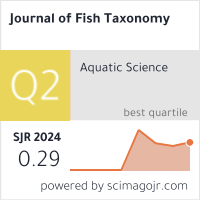Physiological, Biochemical, and Immune Responses of Common Carp (Cyprinus carpio) Fingerlings at Different Initial Stocking Weights under Pond Culture Conditions
Keywords:
Cyprinus carpio, stocking weight, physiology, biochemistry, immune response, pond aquaculture.Abstract
The optimization of initial stocking weight represents a critical factor in enhancing the growth, health, and resilience of common carp (Cyprinus carpio) in pond aquaculture. This study aimed to evaluate the physiological, biochemical, and immune responses of fingerlings reared at different initial body weights (10, 20, 30, and 40 g) under controlled pond conditions. A 90-day rearing trial was conducted in earthen ponds, where fish were monitored for hematological (RBC, Hb, Ht), biochemical (glucose, total protein, lipids, AST, ALT, creatinine, uric acid), and whole-body composition (moisture, protein, lipid, ash) parameters. In addition, reference values for immune indices (lysozyme activity, complement activity, IgM, phagocytic activity, respiratory burst, and serum bactericidal activity) were integrated from the literature to assess weight-dependent immune capacity. The results indicated that larger fingerlings exhibited improved hematological profiles, higher serum protein and lipid levels, and more favorable proximate composition, particularly in the 30–40 g groups. Immune parameters also showed progressive enhancement with weight, with the 30–40 g range representing the most robust immune and metabolic state. These findings suggest that stocking carp fingerlings at 30–40 g body weight provides optimal physiological balance, stronger immune defenses, and better growth efficiency. Such strategies are particularly relevant for improving aquaculture productivity and sustainability under the high-temperature pond farming conditions of Iraq.








